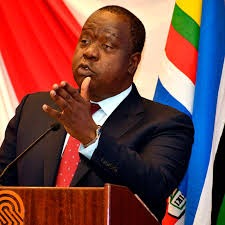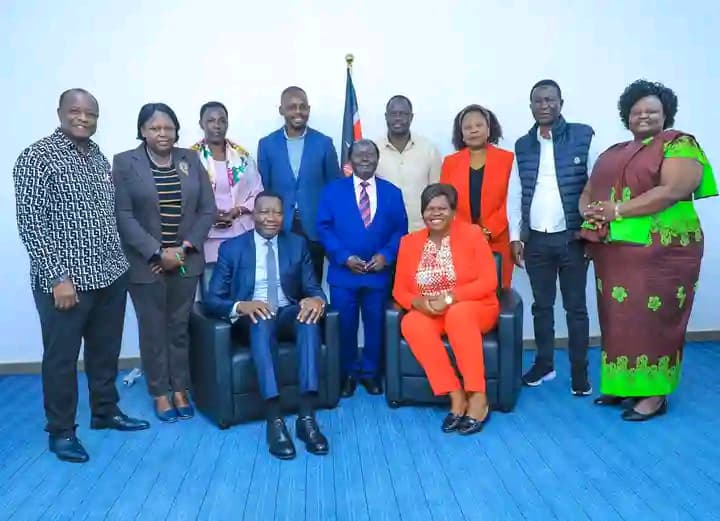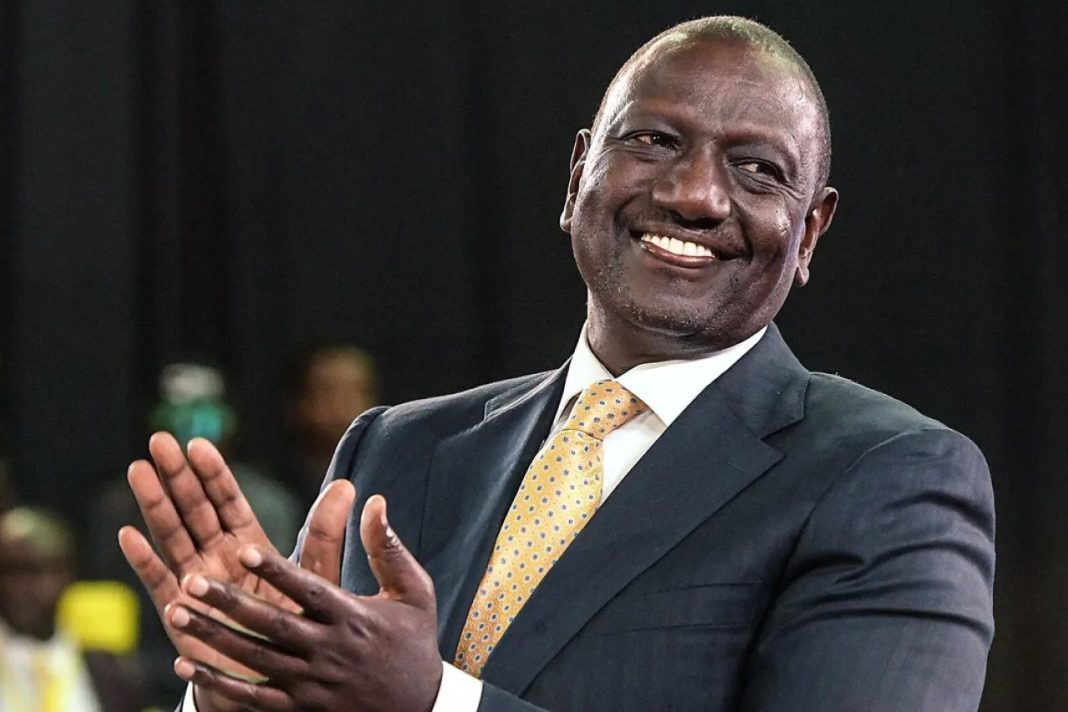By Anderson Ojwang
Despite the buzz and excitement that have marked the entry of former Internal Security Cabinet Secretary Dr Fred Okemo Matiangi into the presidential race, the former Education Minister has a plethora of odds and obstacles in his path to the presidency.
In 2002, during the presidential contest and the fallout in the then ruling party Kanu, then Cabinet Minister Simeon Nyachae formed a party named Ford-P to contest for the presidency.
Nyachae was so convinced that he was the most suitable candidate for the seat owing to his wealth of experience, financial war chest, age, and the networks he had developed while working in various government organs.
Nyachae entered into a political pact with the immediate former Kanu Secretary General Raila Odinga with a view to supporting his presidential bid.
However, Raila later came up with the famous “Kibaki Tosha” slogan, which drove Mwai Kibaki to the presidency, while Kanu’s presidential candidate, Uhuru Kenyatta, and the party suffered the loss. Uhuru later rebranded to become the country’s fourth president, but Kanu has remained a pale shadow of its former self and has been relegated to the periphery.
Nyachae took control of the Gusii votes and won most of the parliamentary seats through Ford-P, and the community, for the first time, occupied the opposition bench.
After the loss, Nyachae’s political interest faded, and the party also lost grip on Gusii land, no longer having elected leaders both at the county and at the National Assembly.
Kisii Senator Richard Onyonka believes that Matiangi can galvanise the Gusii community, where he has already made a name for himself.
“In the country, he is known as a hard worker who is keen on delivering results in any project that he has embarked on, and as a community, we are proud to sell him to the rest of the country,” he said.
Onyonka said that the reason they were advocating for the community to have its own party is to ensure that more than a million votes and almost 20 MPs are valued whenever those in power are making crucial decisions.
“The clamour for the Gusii community to have its own political party is at a fever pitch, as we have the numbers that count, and it is unfortunate that communities with fewer numbers than ours are benefitting more from the government than we are,” said Onyonka.
Former Nyakach MP Ochieng Daima wondered how having a Gusii-driven party would appeal to other regions and how Matiangi plans to wriggle out of Nyachae’s missteps in his presidential bid.
“The first misstep is to represent Matiangi as a tribal king, and that is how Nyachae was relegated to an Abagusii leader and eventually confined to oblivion,” he said.
It will be interesting to witness how Matiangi will wriggle through his mentor Nyachae’s political dilemma to the White House on the hill.
Matiangi also faces the dilemma of the immediate former president Uhuru Kenyatta’s political party, Jubilee, which recently settled on him as their presidential candidate.
The party’s Secretary General, Jeremiah Kioni, when he recently spoke during a morning breakfast talk show and a recent press conference, disclosed that the former Interior Cabinet Secretary was well-suited to clinch the top seat and oust President Ruto in the next polls.
“We are looking for a person who can unify the country, someone who more people can rally around. We are looking for someone who can look William eyeball to eyeball and tell him off,” Kioni stated. Kioni revealed that the Jubilee Party settled on a presidential candidate from outside Mount Kenya, where it enjoys much support, having bagged 28 seats in the 2022 general elections, the majority of which came from the region.
“We are picking somebody from outside the mountain, someone from a small community, and picking a name that’s known. The reason we have the 2010 Constitution is that it allows us to pick a candidate from any corner of the country. We, as the Jubilee Party, have our own candidate, Fred Matiangi. He will face off with the others to ensure Ruto goes home. We want a president from a small community. Let us step aside and let someone else in. Let us unite and vote as one,” he said.
But political analyst Dr Otieno Obondi said that in Kenya’s history, Kanu, the party of independence, set a precedent after it lost the 2002 elections, and in subsequent elections, it has dimmed and been relegated to the periphery.
“Narc won the election, but in 2007, President Kibaki used a different outfit. Uhuru won the 2013 elections using TNA and in 2017 used the Jubilee coalition to win. In the last general elections, Jubilee lost most of its seats to UDA, which is also currently facing a rough tide,” he said.
Otieno said Matiangi will be inheriting Jubilee’s baggage and liabilities, which are likely to puncture his bid and national appeal, as there is no freshness that the party is bringing on board.
In 2013, during President Kibaki’s succession politics, a section of leaders in President Kibaki’s inner political circle had settled on Deputy Prime Minister Musalia Mudavadi as the heir apparent to the throne.
Mudavadi was taken into a charade in 2012 and even signed an agreement with Uhuru and William Ruto that he would be the presidential candidate.
Mudavadi, as reported in The Standard newspaper at the time, said a one-page agreement was signed in dramatic moments on the night of December 4, 2012, and would have seen him fly the team’s presidential bid.
“I had declared my intention, and I was preparing to formally launch my campaigns when these two gentlemen drove into my compound and declared their support for me,” Mudavadi disclosed.
Uhuru would later disown the deal, claiming he was forced to sign the agreement with Mudavadi after being blackmailed by “dark forces.”
“He (the devil) came to me and told me that if we are elected, the West will not give Kenya money; that our tea can’t be sold abroad and that Kenyans are not ready for another Kikuyu president, as this will cause more bloodshed. Given that I love peace, I decided to quit and support Musalia,” Uhuru told delegates at the Multimedia University on December 18, 2012.
Analysts and Kenyans will be closely watching how Matiangi will wriggle himself out of this dilemma to the presidency.




